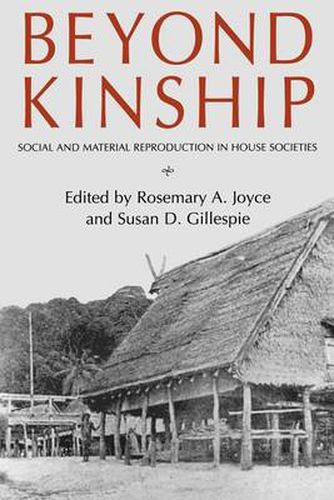Readings Newsletter
Become a Readings Member to make your shopping experience even easier.
Sign in or sign up for free!
You’re not far away from qualifying for FREE standard shipping within Australia
You’ve qualified for FREE standard shipping within Australia
The cart is loading…






Beyond Kinship brings together ethnohistorians, archaeologists, and cultural anthropologists for the first time in a common discussion of the social model of house societies proposed by Claude Levi-Strauss. While kinship theory has been central to the study of social organization, an alternative approach has emerged-that of seeing the house both as a physical and symbolic structure and a principle of social organization.
The house stands as a model social formation that is distinguished by its attention to a number of material domains (land, the dwelling, ritual and nonritual objects). As the essays in this volume make clear, the focus on material culture and on place contributes to the ongoing convergence of anthropology and history and helps erase the artificial distinctions between prehistory and history.
Contributions to the volume offer significant new interpretations of primary data as well as reconsidering classic ethnographic material. Beyond Kinship crosses the boundaries within anthropology-not only between cultural anthropology and archaeology but between structural-symbolic and materialist approaches and between American and British schools of anthropology; it is intended to advance the fruitful dialogue now taking place within the field.
$9.00 standard shipping within Australia
FREE standard shipping within Australia for orders over $100.00
Express & International shipping calculated at checkout
Beyond Kinship brings together ethnohistorians, archaeologists, and cultural anthropologists for the first time in a common discussion of the social model of house societies proposed by Claude Levi-Strauss. While kinship theory has been central to the study of social organization, an alternative approach has emerged-that of seeing the house both as a physical and symbolic structure and a principle of social organization.
The house stands as a model social formation that is distinguished by its attention to a number of material domains (land, the dwelling, ritual and nonritual objects). As the essays in this volume make clear, the focus on material culture and on place contributes to the ongoing convergence of anthropology and history and helps erase the artificial distinctions between prehistory and history.
Contributions to the volume offer significant new interpretations of primary data as well as reconsidering classic ethnographic material. Beyond Kinship crosses the boundaries within anthropology-not only between cultural anthropology and archaeology but between structural-symbolic and materialist approaches and between American and British schools of anthropology; it is intended to advance the fruitful dialogue now taking place within the field.